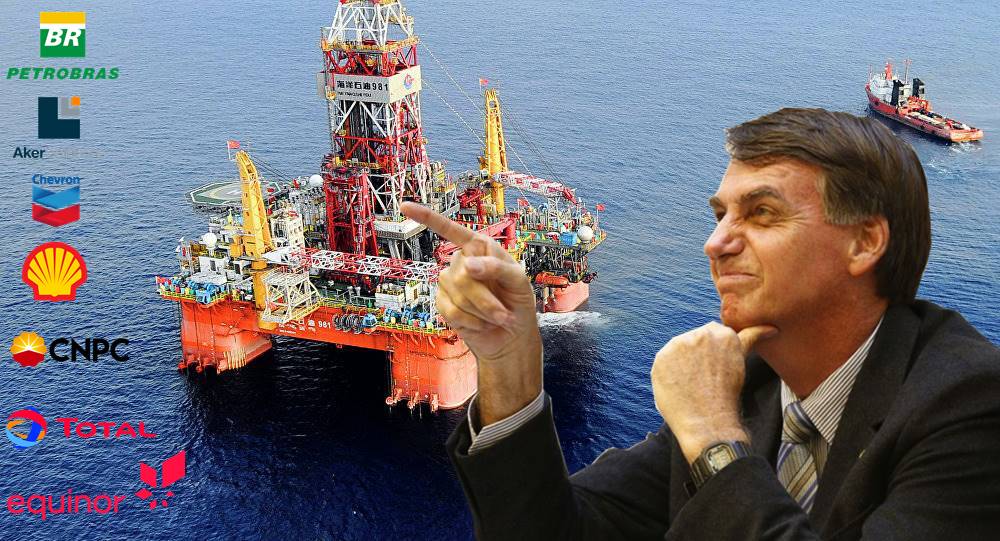
He also adds that if the PT returned to power, it would be a setback for everything that has been done in the last 4 years so far and that Bolsonaro's energy plan is the most viable at the moment.
Brazil's oil industry remained cautiously optimistic ahead of Sunday's second round of voting in this year's presidential election cycle, with former military officer Jair Bolsonaro still leading the polls, albeit with a slim margin over the Party of States candidate. Workers, Fernando Haddad. Bolsonaro won the election with Present in several = 56,70% of the votes, while Haddad lost with 44,46%.
Brazil's weak economic growth, rising unemployment and rampant violence dominated most of the campaign season, with energy policy considered an afterthought among the country's electorate. The two candidates, however, held such different visions for the development of Brazil's offshore oil wealth and refined product markets as to raise concerns about where the policy might be headed.
“Bolsonaro represents the current and favorable status quo, although there may be some hiccups,” an oil industry executive recently told S&P Global Platts, noting at times controversial comments that provoke comparisons with US President Donald Trump. “But a PT return to power would definitely represent a step backwards and would likely lead to a slowdown in the recovery we have seen since last year.”
Bolsonaro's energy plan captivated the market
Bolsonaro unveiled a policy plan for his prospective government in early October shortly after the first round, indicating he backed a government-led inquiry into the state's management, as well as a review of the country's production-sharing regime for workers. pre-salt fields. The plan bolstered expectations Bolsonaro would likely continue with reform efforts that have attracted investment from heavyweights like BP, Equinor, ExxonMobil, Shell and Total.
The current government has returned to a fixed schedule of bidding rounds under concession and production-sharing contracts, opened up pre-salt fields sold under production contracts to operate by international oil companies instead of Petrobras, and reduced requirements to use assets and services produced locally in exploration and development. The reforms generated fierce competition in six auctions held in 2017 and 2018, which generated record signing bonuses and government profit guarantees, with activity expected at 50% to 5,5 million b/d in the mid-2020s.
While Bolsonaro promised to continue the fight against government meddling in Petrobras and the industry, market talk that he was considering appointing a general to be Petrobras' CEO raised concerns about past pledges to keep management in state entities under industry-specific leadership. . Petrobras' current president, Ivan Monteiro, and predecessor, Pedro Parente, were praised for their market turnaround at the company, following the corruption scandal that led to the Lava Jato investigation, so a change in management could be considered. one step back.
Bolsonaro says he is worried about the Chinese
Bolsonaro has also been highly critical of China's investments in Brazil, saying Asian investors are snapping up local assets at a low price. The candidate said he wants to limit foreign ownership in strategic areas like power generation.
China's CNPC and CNOOC are partners on the offshore Libra Field, the first area sold under the country's production sharing regime. CNPC and Petrobras also recently reached an agreement in which the Chinese company could have a 20% stake in the unfinished Comperj refinery and in the Marlim Field revitalization project.
Bolsonaro also supports Petrobras' divestment plan, which could put an end to the lawsuits and legal wrangling that derailed the company's $21 billion asset sales program between 2017 and 2018. Bolsonaro wants Petrobras to go further further, reducing the monopoly stakes that the company holds in areas such as refining, distribution, logistics and transport.
Haddad wanted to reverse everything that has been done so far
Haddad, in turn, favors a return to the state-led development model implemented by former PT presidents Luiz Inácio Lula da Silva and Dilma Rousseff.
The candidate would reverse changes made to the production-sharing regime in 2016 that removed the single-operator requirement, which forced Petrobras to own at least a 30% operating stake in each field sold under production-sharing contracts. The company asked for the change because it had no more money to finance investments, which reduced the pace of development.
Haddad also wants to force oil companies to buy equipment and services from Brazilian companies. Local content rules, implemented in the early 2000s in an effort to create a robust oilfield services industry, ended up causing cost lags and development delays when Brazilian companies were unable to efficiently meet rising demand.
Despite Haddad's state leadership, the majority of oil industry executives interviewed by Platts said the candidate would likely take a more pragmatic approach if he won, honors contracts in the latest bidding rounds and continues with the current bidding schedule, albeit with some related changes. Petrobras' role in the pre-salt layer. Publication source: Global Platts








